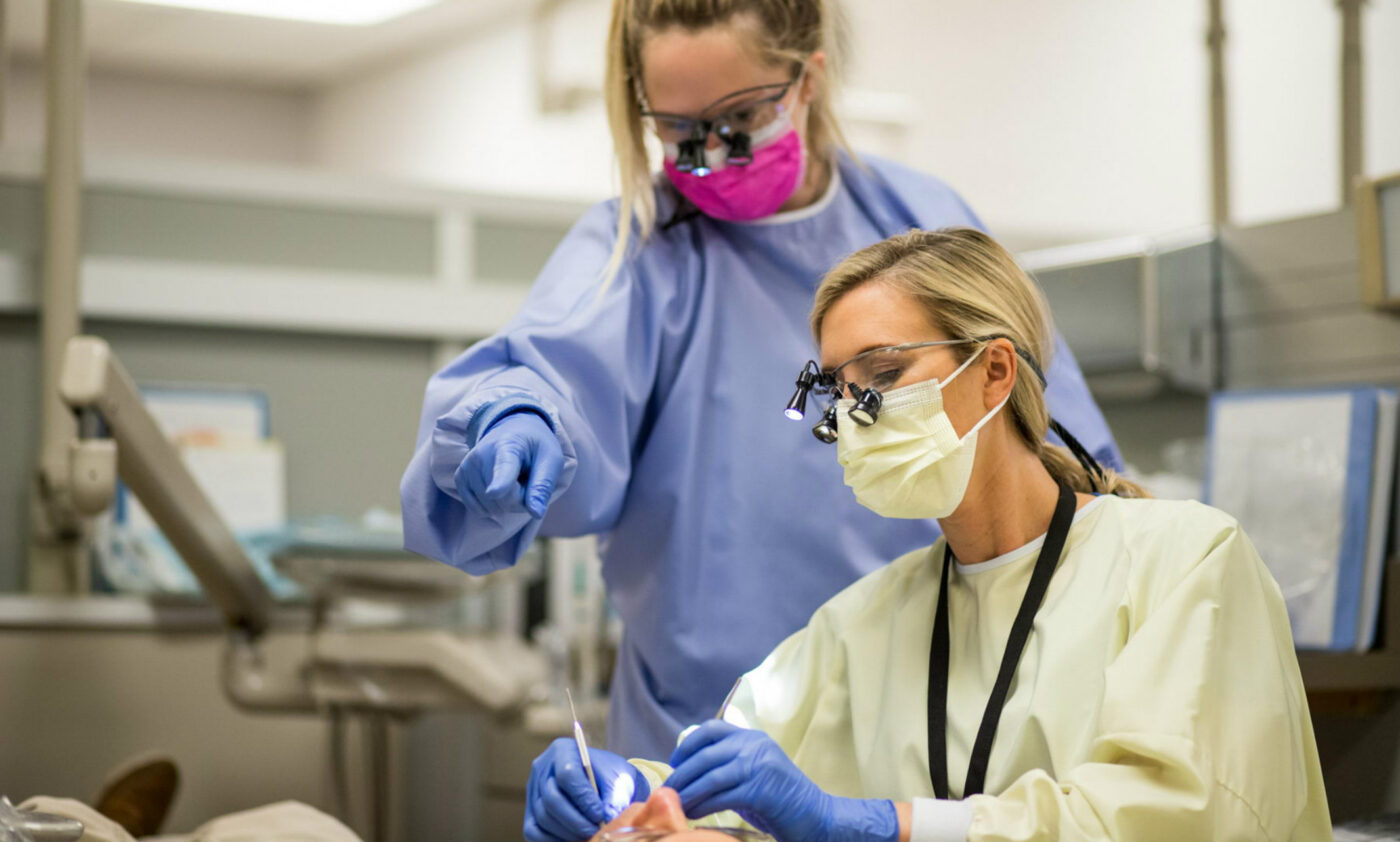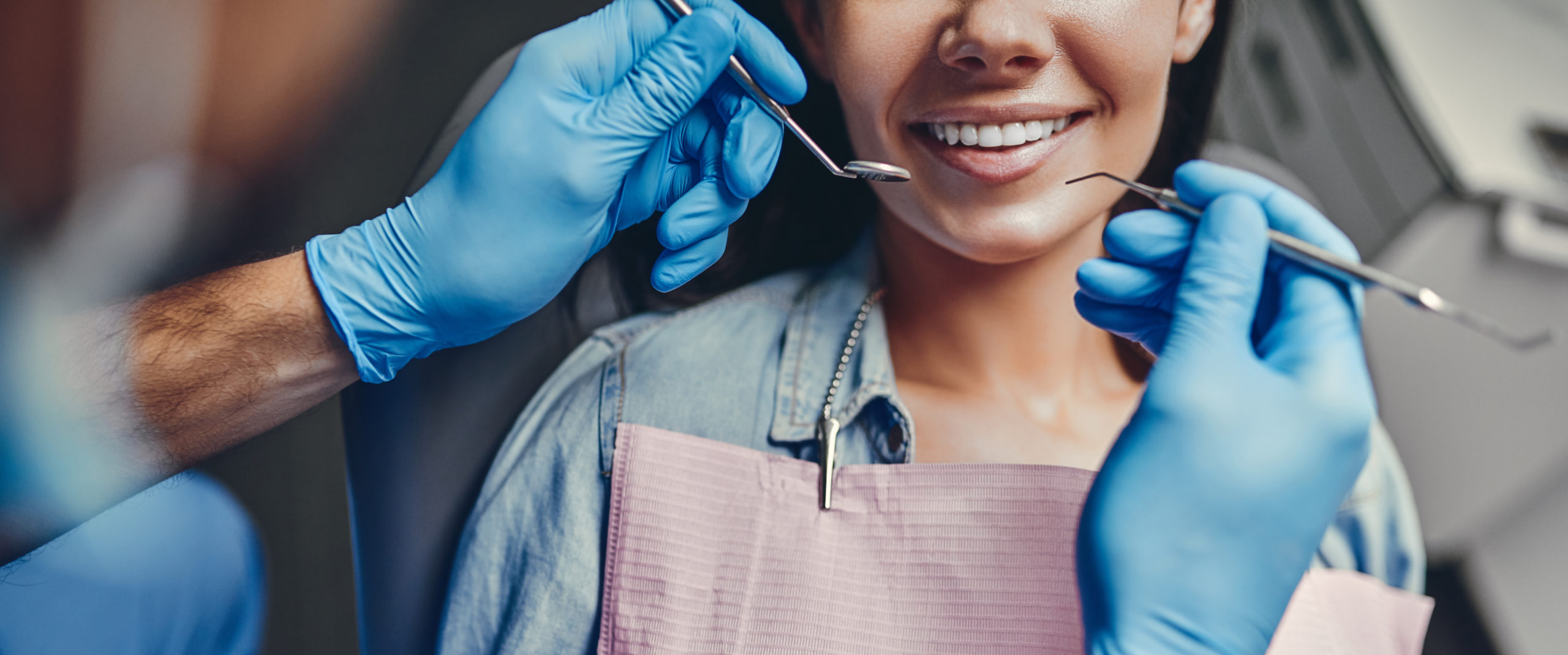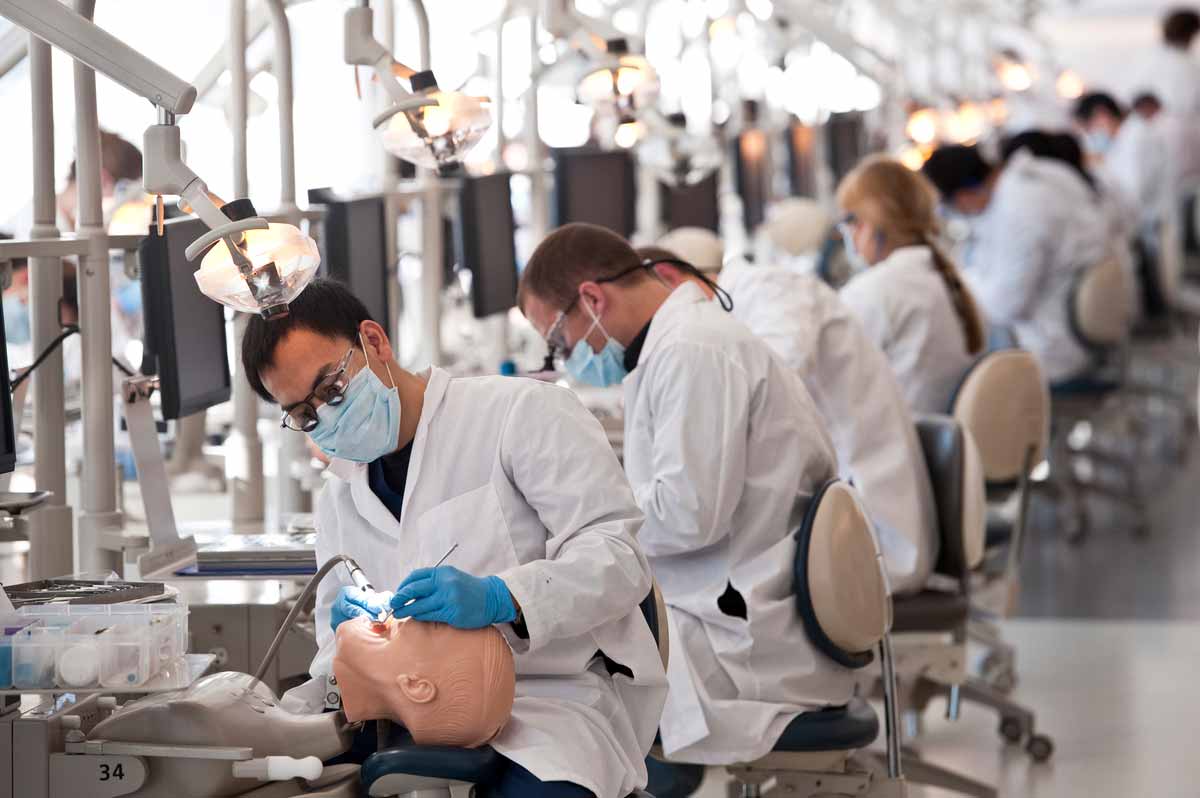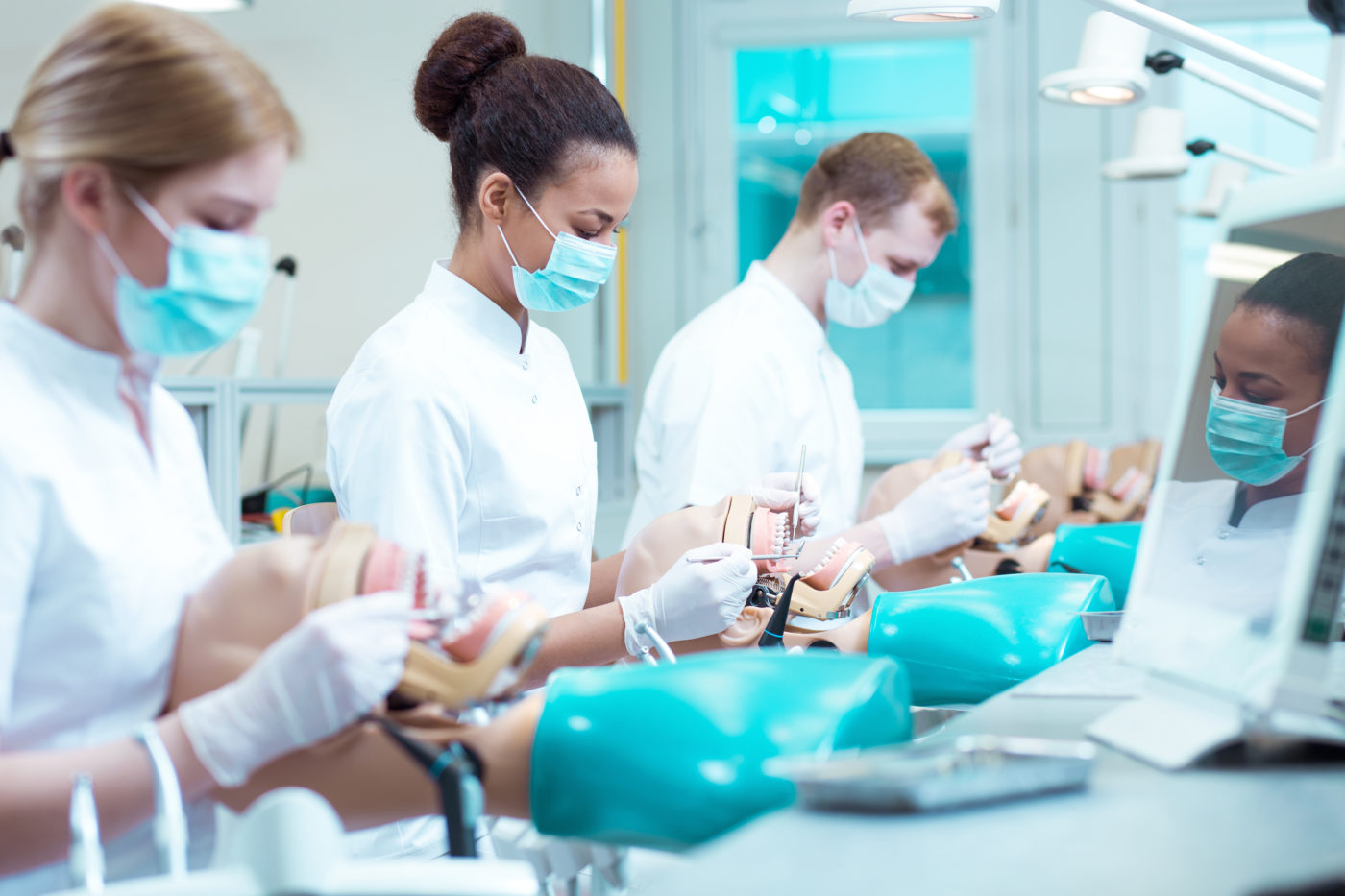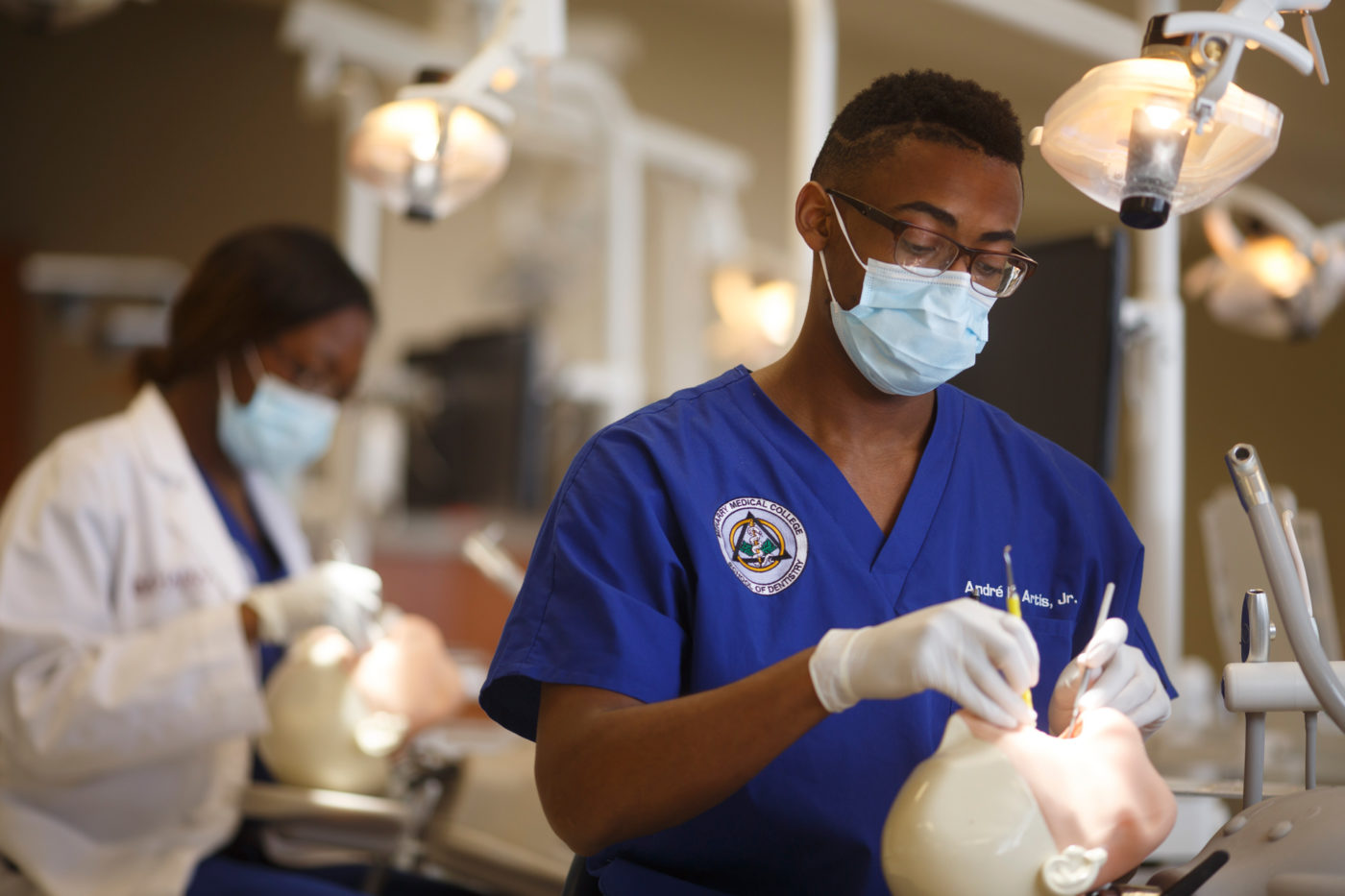Are you a student wondering how to become a dentist in 2023? Dentistry is one of the most lucrative and rewarding careers. Not only that, but you will have the chance to improve your patients’ oral health. Being a dentist also allows you to choose from many career options. Above all, you will be able to maintain a flexible lifestyle. However, the margin for error is smaller than ever for new dentists. The current acceptance rate is a testament to how challenging it is to join a dental school.
But that does not mean that you should give up. Knowing the steps you should follow to become a dentist will make the process much easier. So, keep reading to discover everything you should know about becoming a dentist, including licensing, training, and certification requirements.
What Does an Ordinary Day in the Life of a Dentist Look Like?
A dentist is a trained healthcare professional devoted to restoring, improving, and maintaining oral health. Dentists use their skills, expertise and innovative tools to diagnose, treat and maintain the health of the mouth’s gums, teeth, and surrounding tissues.
As a dentist, you will encounter patients with different oral problems daily, such as root infections, tooth decay, gum disease, sensitive teeth, broken teeth and enamel erosion. To help your patients, you have to perform various procedures such as:
- Teeth whitening
- Sealing teeth
- Filling cavities
- Bonding
- Root canals
- Placing dental bridges
- Installing crowns
- Extractions
- Implant restoration
- Reading x-rays
You will need scalpels, lasers, drills, x-rays, probes and various equipment to carry out these procedures. Depending on your specialization, you will work in a specialized field like pediatric dentistry, periodontics and endodontics or a general field like general community dentistry. You will also work with receptionists, dental assistants, dental hygienists and other healthcare professionals daily.
How Much Does a Dentist Make?
Dentists are among the highest-paid healthcare professionals in the US and worldwide. On average, dentists in the United States take home $177,158 as of September 2022. Their salaries range from $130,000 to $230,000 per year. The median dentist’s salary in Canada is $126,000 per year. However, their salaries vary widely based on the following factors:
Education and Experience
Dentists’ salaries and benefits are directly proportional to their level of education and experience. Entry-level dentists can expect to earn $86,684 annually, while dentists with more than ten years of experience make more than $206,006 annually.
Industry
Dentists’ salaries also depend on the industry in which they are working. Typically, United States Federal Government dentists earn more than their counterparts in other industries. In May 2021, the average base salary for general dentists employed by the federal government was $182,330 per year. On the other hand, the average annual salary for dentists working in outpatient care centers was $162,120.
Location
Where you practice will also determine how much you can earn as a dentist. Dentists working in large metropolitan areas usually make more because of the high cost of living. For instance, dentists in Washington, DC earn anywhere from $171,851 to $227,698 as of September 2022. On the other hand, dentists in Salt Lake City, UT earn between $146,705 and $194,379.
Specialty
Salaries also vary with the dentist’s specialty. Here is a breakdown of how dentists’ salaries vary based on specialty:
- Oral and maxillofacial surgeons earn more than $208,000
- Orthodontists earn $208,000
- General dentists earn $160,370
- Prosthodontics earn $100,950
The number of hours a dentist works also impacts the salary. Typically, dentists work less than 40 hours every week, but some choose to work on evenings and weekends due to their patient’s tight schedules.
The Average Dentist Salary by State
As mentioned earlier, geography is a crucial factor in determining dentist salaries. So, it helps to identify the top-paying states if you are about to start your practice.
Here are the top nine states where the average salary for a dentist is above the national average:
- Hawaii
- Nevada
- Massachusetts
- Rhode Island
- Oregon
- Alaska
- North Dakota
- Washington
- New York
The nine states where dentists earn the least include:
- Lowa
- West Virginia
- Utah
- New Mexico
- Alabama
- North Carolina
- Florida
- Louisiana
- Georgia
How Dentist Salaries Stack Up Against Other Professions
The median wage for dentists in the United States continues to be higher than the median salary in the US and Canada. Additionally, dentists’ wages are higher than other healthcare practitioners. Here is how dentists’ salaries compare to other related professions:
- Dental Assistant – $35,961 per year
- Dental Hygienist – $76,315
- Dental Lab Technician – $39,580
Dentist Job Outlook
To determine if the dental profession is good for you, it is best to compare dentists’ current demand and supply. You also need to consider the projected growth of the dental profession to make the best decision. Luckily, the overall employment rate for dentists is set to grow by 6% in the next ten years. Moreover, approximately 5,100 job openings are expected every year.
Many of these job openings will continue becoming available as baby boomers age. As they continue to age, they will require precise dental treatment and care. In addition, the increasing demand for more complicated procedures, such as implants, will also increase the demand for dentists. Besides, many dentists prefer to work in their clinics, which creates more employment opportunities.
What’s more, there is a shortage of about 10,000 dentists due to the expanding dental insurance coverage and the growing population. Data released by the Health Policy Institute shows that there is about one dentist per 1,818 people in the US.
Regarding the supply, you will be happy to know that the dental school applicant rate has stagnated since 2010. Moreover, acceptance rates have been rising steadily. As a result, more students are now joining dental schools. 26,228 students joined dental schools in the 2021-2022 academic year, up from 25,995 the previous year. Additionally, 6,665 students graduated in 2021, up from 6,609 in 2022. These statistics show that the supply of dentists is likely to remain low. That also means that graduates will find high-paying positions easily.
What’s more, the dentist unemployment rates in the US are 0.3% which is significantly lower than the national unemployment rate, which is 3.5%. You can start your clinic even if you fail to secure an employment opportunity.
How Much Schooling is Required to Be a Licensed Dentist?
One frequently asked question about how to become a certified dentist is how much schooling to be a dentist. It takes more than eight years to become a certified dentist. You must complete four years of schooling to get an undergraduate bachelor’s degree and another four years to get a DMD or DDS degree. You must also take a few years of residency training to start practicing.
Step-by-Step Guide to Become a Dentist
If you have been wondering what dentist schooling requirements you need to become a dentist, this step-by-step guide will take you through all dentist schooling requirements you should attain to become a dentist.
Start Your Journey in High School
It’s always advisable to determine what you want to do in your career and take the necessary steps throughout your academic journey. Once you determine your preferred career path, you can pursue courses and programs to achieve your goals and dreams.
If dentistry is your dream job, high school is the perfect place to launch your career. You only need to take courses and programs that will boost your options in the future. Since science and math are medical school prerequisites, it would be best to take math and science courses in high school.
That is not enough. You should also look for opportunities that will support your aspiration. You can do that by asking friends and relatives in dental school many questions. You can also join mentorship programs and attend career exploration sessions to learn more about the practice. If possible, have one-on-one discussions with dentists near you to learn about the industry.
Undergraduate Degree
Whether you started your journey in high school or after high school, one of the dentist schooling requirements you must have is a doctoral or professional degree to become a licensed dentist. Although dentist schooling requirements vary from one dental school to another, taking chemistry and introductory biology courses increases your chances of becoming a certified dentist. The typical prerequisites to becoming a dentist include the following:
- 8 Hours of Biology With Lab
- 8 Hours of Physics With Lab
- 8 Hours of English
- 8 Hours of Organic Chemistry With Labs
- 8 Hours of General Chemistry With Labs
If you are wondering what to major in to become a dentist, you will be glad to know that no particular major is required to join a dental school. Most dental schools encourage applicants to complete any degree in science. So, choose a degree you are passionate about to attain a high GPA. Besides, some of the courses you will complete in other faculties will allow you to meet the scientific requirements of joining a dental school.
Work on the Nonacademic Requirements
Since most dental schools have other nonacademic requirements, it’s best to start working on these requirements as early as possible. You can begin by job shadowing a few dentists to learn the ins and outs of dentistry. Furthermore, schedule one-on-one conversations with dentists near you to learn more about the field.
You should also join the Student Dental Association to stay up-to-date with the latest requirements. You can also volunteer in clinics or hospitals to boost your chances of getting into dental school. Better yet, seek relevant job opportunities.
Start Preparing for the Dental Admissions Test
After completing an undergraduate degree, you must take the dental admissions test, also known as DAT, to get into dental school. So, it is essential to start preparing for this examination as early as possible. It’s best to take the test one year before you plan to join dental school. To ace the test, you must demonstrate your understanding of various sciences and how well you process sensory information.
The DAT examination is divided into four sections: manual dexterity test, survey or natural sciences, perceptual ability test, and reading comprehension test. The manual dexterity test will assess your psychomotor abilities required to complete various dental procedures and usually takes 30 minutes. You will be required to carve a model from a bar of soap.
The natural science section measures your understanding of general chemistry and introductory biology. You will have to complete 40 biology and 30 general chemistry questions in 60 minutes.
After that, you will proceed to the perceptual ability section, which measures the skills required to complete various procedures. This section has a view recognition, angle discrimination, apertures, cube counting, 3D form development, and a paper folding section. You have to complete 90 questions in this section in 60 minutes.
Finally, you will complete the reading comprehension test that measures your ability to read, analyze, and comprehend written text. The section has 50 questions, and you will have 50 minutes to answer them.
Submit Your Academic History
You also need to submit your academic credentials when submitting your application. Your official transcripts, letters of recommendation and personal statements are some of the documents you should submit. Dental schools require these documents to ensure applicants have completed the prerequisite courses and calculate the cumulative GPA.
In most cases, dental schools require applicants to submit at least three letters of recommendation to highlight their nonacademic abilities. As such, contact your recommenders as early as possible. Your recommenders must be people who know your attributes and strengths. Therefore, ask a university instructor and someone from an internship or volunteer program you have attended to write a recommendation letter for you. If you have joined student or community organizations, you can ask them to draft an honest letter of recommendation for you.
Some dental schools also require applicants to submit personal statements to outline their strengths and why they should be considered. When writing your statement, highlight your attributes and two to three relevant experiences. It’s also advisable to request your friends or relatives to proofread your letter to check for grammar and spelling mistakes. Above all, your personal statement should follow the structure of an academic essay and should be more than 4,500 characters.
Prepare for Your Dental School Interview
After submitting your online application, the admissions committee will review your application and decide whether to shortlist you for the interview. The selection panel will ask various questions to measure your communication, leadership, confidence, self-awareness, and other necessary skills to excel in dental school and dentistry. The interview can take different formats, including panel, traditional or multiple mini-interview formats.
To ace your dental school interview, you must prepare early. You can even ask a friend or a relative to conduct a mock interview to practice answering common interview questions such as “tell me about yourself,” “What do you consider to be your greatest weakness” and more.
Take your time to understand the rationale behind each question and come up with solid and convincing answers. If you want to enhance your chances of joining a dental school, you can apply at various dental schools at once through the Associated American Dental Schools Application Service (AADSAS). However, you will have to pay a fee.
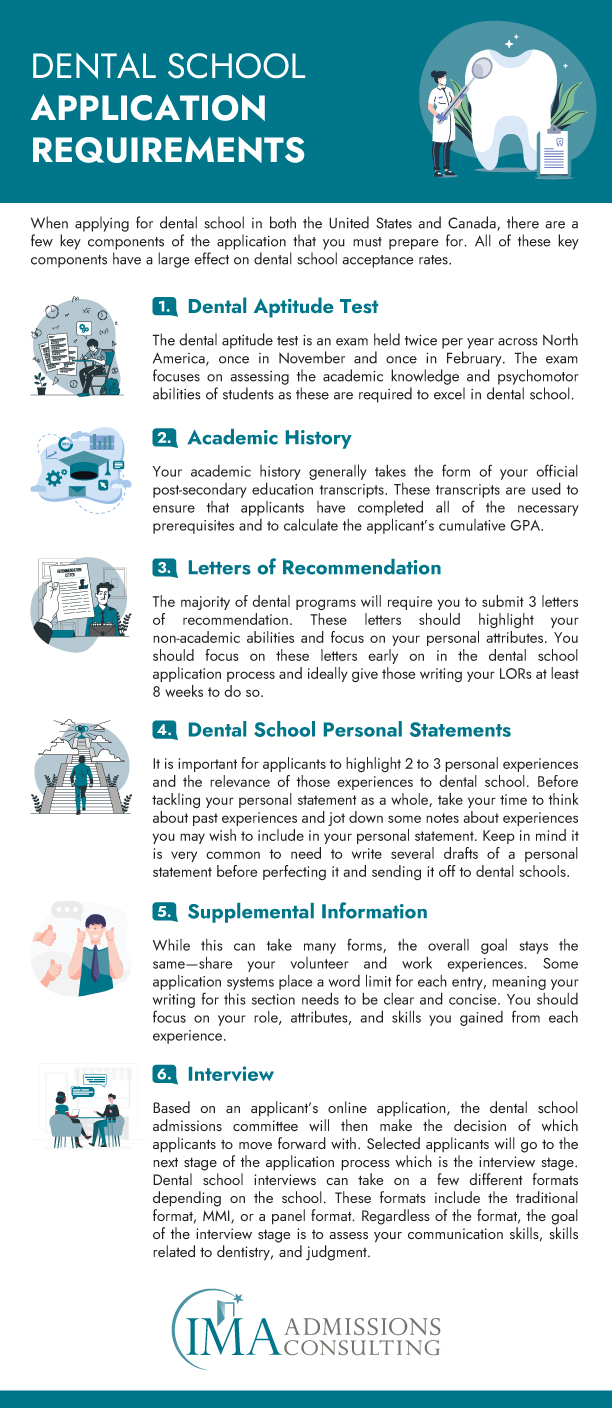
Life at a Dental School
If the dental school accepts your application, you will have the chance to pursue your dreams. Life at a dental school can be demanding. In the first two years, you will spend most of your time engaging in classroom-based education studying the basics of dentistry, diagnostics, the structure and function of the body, and the diseases that can affect it. Your dental school will also have procedure-based labs to support learning and help you develop the skills required to help you become a successful dentist.
Some of the classes you will be attending include:
- Biochemistry
- Anatomy
- Microbiology
- Dental-Oriented Sciences
- Physiology
- Pharmacology
On top of that, you will also learn about how to care for different demographics. You may also provide essential oral care to some patients. Additionally, you will practice basic procedures on models of mouth and teeth.
In the third and fourth years, you will spend most of your time in clinical rotations to learn everything about the practice of dentistry. You will interact with different patients to learn how to care for a diverse array of populations. You can rotate through hospitals, community settings, or clinics. Alternatively, you can work under the supervision of a clinical instructor.
How to Choose the Best Dental School for You
As you can see, life at a dental school can be overwhelming, so you should choose a school that will make your journey easier. Although there are 68 accredited dental schools in the US, each has its programs, resources, and missions. So, follow these tips to find the best dental school for unique needs and preferences.
Identify Your Aspirations and Preferences
It’s great to do some soul-searching before choosing a dental school. Identify your motivations and expectations. Thinking about your motivations and expectations early on will help you find a dental school that supports your dreams.
Think About the Location
The dental school you choose will become your new home for the next couple of years. Therefore, it is crucial to consider location before applying for a dental school. Perhaps you want a dental school close to your family, or you would like to go out of state. You also need to factor in the patient pool, social activities, and cost of living.
Check the Class Size
Do you prefer a personalized experience? Or maybe you prefer a large school with diverse social and networking opportunities. Ask yourself these questions to find the best dental school.
Determine the Type of Curriculum You Want
Each dental school has its own curriculum and teaching style. That’s why you should find out how classes are delivered in the dental schools you are considering. Do you prefer lecture-based classes or interactive classes? Also, find out how the school evaluates its students. Knowing when the school will let you see your first patient is also essential. Don’t forget to find out if the school has cutting-edge technology in its labs and classrooms.
Think About Your Future Plans
The dental school you will choose will have a massive impact on your career plans. So, look at graduate statistics to find out how graduates from that school advance their careers. If you plan to specialize, it would be best to find out whether the school enables graduates to get into specialty programs.
Choose a School With Many Opportunities
To advance your professional skills, you should choose a dental school with many leadership, internship and communication opportunities. Also, select a school with vibrant student organizations and endless recreational activities.
Jumpstarting Your Dental Career
After graduating, you will have countless opportunities to choose from. But before that, you must become licensed by the state you want to practice in. You must complete an OSCE and a written exam to start practicing. The OSCE will assess your readiness to start practicing dentistry, while the written examination will test your theoretical preparedness.
From there, you can begin your career as a general dentist, open your own clinic or join other sectors. You can also choose to take further training or specialize. If you decide to specialize, you will need to complete more years of extra education and residency after graduating. It’s important to note that dental residences are among the most competitive residencies out there. After your residency, you will complete an examination for your subspecialty to start practicing. Some of the specialty areas you can pursue include:
- Endodontics
- Dental Public Health
- Oral and Maxillofacial Pathology
- Dental Anesthesiology
- Oral and Maxillofacial Surgery
- Oral and Maxillofacial Radiology
- Prosthodontics
- Periodontics
- Pediatric Dentistry
- Orthodontics and Dentofacial Orthopedics
If you want to be an associate, there are several sectors you can practice in, such as public health, academics, research, hospital and international healthcare. Working as an associate offers endless opportunities for advancement and career development. It will also give you a stable source of income to service school loan debt as quickly as possible.
However, starting your practice gives you complete control and financial independence. It also gives you more flexibility and fulfillment. Not only that but opening your practice allows you to work fewer hours and earn more. But starting your practice is not an easy journey. You must develop the required dental skills and build a clinic from scratch. Better yet, join or develop a partnership or buy an existing practice.
Is it Worth it to Become a Dentist?
Dentistry is among the most rewarding careers. It’s not surprising that the US News and World Report lists dentistry as one of the most rewarding jobs for the seventh consecutive year. If you are wondering whether being a dentist is worth it, here are compelling reasons why you should pursue a dentistry career.
Transform the Lives of Your Patient Daily
Whether you are working as an associate dentist or have your clinic, you will have the opportunity to impact the lives of your patients daily. You can use your skills to provide high-quality preventive oral care to protect your patients from gum disease, cavities, tooth decay and other dental problems.
In addition, you can educate your patients about good oral habits like flossing and brushing twice a day to improve their oral health. Dentists also have the expertise to deliver the highest-quality restorative procedures to repair and replace damaged or decayed teeth. As a dentist, you will have the opportunity to restore your patients’ natural smiles.
You Can Start Your Own Practice
Although 90% of dentists prefer to work as associate dentists, you have the chance to open your practice and be self-employed. Starting your practice can be a wonderful and fulfilling experience, and it allows you to set your own hours doing what you love the most.
Dentistry is an Ever Growing Career
According to the Bureau of Labor Statistics, the global dental market is set to grow by 6% in the next ten years. Moreover, at least 5,100 job openings for dentists are projected each year. What’s more, the growing population will lead to an increased demand for dental services. Other factors that increase the demand for dental services Include high education levels, increasing household income and advancing age.
Use Technology to Make a Difference
Dental technology is constantly changing. As a licensed dentist, you will have the chance to use advanced technology to impact the lives of your patients. Advanced technology has made dental procedures such as restorations, teeth whitening, fillings, braces and extractions much easier and more comfortable for patients.
Earn a Good Salary
As a dentist, you can earn as much as $230,000 yearly, depending on your experience, education level, location, and specialty. On average, dentists in the US take home $177,158 per year. On top of that, you can expect your salary to improve by 12% every 17 months. You can also increase your wages by opening your own practice. This will let you adjust your cost and fees according to market demands. Opening your own practice allows you to market yourself to reach more patients.
Become a Role Model and a Respected Member of the Community
When you become a dentist, your team members and the community will highly regard your contributions to the dental industry. Some of your team members will also come to you for advice on advancing their careers. Patients will also look up to you for guidance on maintaining good oral health. What’s more, you can use your research skills to create relevant health education programs based on your community’s needs.
Have a Balanced Lifestyle
Dentistry is your most suitable career path if you want a career that provides unmatched flexibility. Working as a dentist allows you to have a balanced lifestyle. You will have complete control over how much you work. Above all, working as a dentist gives you the flexibility of working in any location across the country. You can also work extra hours to increase your earnings.
Diverse Career Opportunities
Once you graduate from dental school, you will have multiple career options. You can decide to become a general dentist who performs various procedures throughout the day. Alternatively, you can choose a specialization that fits your interests and career goals. There are several specialization roles to choose from that focus on different demographics and dental issues.
Dentistry is among the most rewarding careers. It’s not surprising that the US News and World Report lists dentistry as one of the most rewarding jobs for the seventh consecutive year. If you are wondering whether being a dentist is worth it, here are compelling reasons why you should pursue a dentistry career.
Transform the Lives of Your Patient Daily
Whether you are working as an associate dentist or have your clinic, you will have the opportunity to impact the lives of your patients daily. You can use your skills to provide high-quality preventive oral care to protect your patients from gum disease, cavities, tooth decay and other dental problems.
In addition, you can educate your patients about good oral habits like flossing and brushing twice a day to improve their oral health. Dentists also have the expertise to deliver the highest-quality restorative procedures to repair and replace damaged or decayed teeth. As a dentist, you will have the opportunity to restore your patients’ natural smiles.
You Can Start Your Own Practice
Although 90% of dentists prefer to work as associate dentists, you have the chance to open your practice and be self-employed. Starting your practice can be a wonderful and fulfilling experience, and it allows you to set your own hours doing what you love the most.
Dentistry is an Ever Growing Career
According to the Bureau of Labor Statistics, the global dental market is set to grow by 6% in the next ten years. Moreover, at least 5,100 job openings for dentists are projected each year. What’s more, the growing population will lead to an increased demand for dental services. Other factors that increase the demand for dental services Include high education levels, increasing household income and advancing age.
Use Technology to Make a Difference
Dental technology is constantly changing. As a licensed dentist, you will have the chance to use advanced technology to impact the lives of your patients. Advanced technology has made dental procedures such as restorations, teeth whitening, fillings, braces and extractions much easier and more comfortable for patients.
Earn a Good Salary
As a dentist, you can earn as much as $230,000 yearly, depending on your experience, education level, location, and specialty. On average, dentists in the US take home $177,158 per year. On top of that, you can expect your salary to improve by 12% every 17 months. You can also increase your wages by opening your own practice. This will let you adjust your cost and fees according to market demands. Opening your own practice allows you to market yourself to reach more patients.
Become a Role Model and a Respected Member of the Community
When you become a dentist, your team members and the community will highly regard your contributions to the dental industry. Some of your team members will also come to you for advice on advancing their careers. Patients will also look up to you for guidance on maintaining good oral health. What’s more, you can use your research skills to create relevant health education programs based on your community’s needs.
Have a Balanced Lifestyle
Dentistry is your most suitable career path if you want a career that provides unmatched flexibility. Working as a dentist allows you to have a balanced lifestyle. You will have complete control over how much you work. Above all, working as a dentist gives you the flexibility of working in any location across the country. You can also work extra hours to increase your earnings.
Diverse Career Opportunities
Once you graduate from dental school, you will have multiple career options. You can decide to become a general dentist who performs various procedures throughout the day. Alternatively, you can choose a specialization that fits your interests and career goals. There are several specialization roles to choose from that focus on different demographics and dental issues.
What are the Disadvantages of Being a Dentist
Like any other career, dentistry also has its fair share of challenges. Knowing the challenges, you might face as a dentist will make your journey much more straightforward. Let’s discuss some of the challenges you might encounter as a dentist.
Many Years of School
If school is not your cup of tea, then going through dental school might be a bit complicated for you. Typically, dentists complete four years at a dental school. They also have to complete additional years of study or residency if they want to specialize. Although it might seem intimidating, it’s well worth it, and you will enjoy the outcomes.
Can Be Expensive
Another challenge you are likely to encounter is the costs. You will have to complete an undergraduate degree before joining a dental school. On average, dental students in the US and Canada graduate with a $300,000 student loan debt. Your debt can also be higher if you join an expensive dental program and live in a costly city. You might find it hard to service your student debt in the first few years of practice. It might also make it hard for you to start your practice.
Quite Demanding
Dentistry is among the most demanding careers out there. Almost all dental procedures require precision and care. For instance, removing a broken endodontic file from the root canal requires high precision and care. Dealing with complex patients can also be exhausting. Some patients also have small mouths, a lot of saliva, big tongues and are sensitive to objects entering their mouths. Additionally, you will have to deal with the emotions of different patients daily.
Frequently Asked Questions
Is dentistry the right career for me?
It’s great to ask yourself whether dentistry is the right career path for you before applying for dental school. The truth is that dentistry is the right career option for many people because of its many perks. However, it also has its share of challenges, like other careers. If you love studying, using technology, helping others and being creative, then dentistry is your most suitable career choice. You can also shadow a dentist to experience the perks and challenges of being a dentist.
What are the different dentist schooling requirements to become a dentist?
Although the exact educational requirements or prerequisites differ from one dental school to another, most schools require applicants to have an undergraduate bachelor’s degree. On top of that, you must complete eight hours of biology with labs, physics, English, general chemistry with labs, and organic chemistry with labs. You must also take the Dental Admissions Test, also known as DAT. The DAT exam is 100% computerized and assesses your ability to understand various sciences and process sensory information. After completing your DAT exam, you can now apply for the dental school of your choice.
Is it hard to become a dentist?
It isn’t easy to become a licensed dentist these days. It is highly competitive, and only those who show passion and determination succeed in this field. You must be ready to complete at least eight years of school, including an undergraduate bachelor’s degree. Even after college, you must get a good score on your DAT test to increase your chances of joining the dental school. If you want to specialize, you must also undertake further studies or residency. Fortunately, about 50% of applications go through.
What degree do you need to be a dentist?
You don’t need any specific degree to become a dentist. However, there are some prerequisite courses you should complete, as is the case with other medical professions. Luckily, you can complete most of these courses in most undergraduate degrees. So, choose a field you are passionate about to boost your GPA scores. Even if you take an arts degree in political science, linguistics, psychology, and more, you can still become a dentist. Just take the required science prerequisites as electives. If you love science, you will be able to complete these prerequisites in your undergraduate degree.
What other requirements to become a dentist?
Besides dentist schooling requirements, you should also engage in other activities to support your application. Dental schools prefer well-rounded students who can excel in different fields. With that in mind, you need to demonstrate your leadership, communication, critical thinking, collaboration, creativity, and decision-making skills to boost your chances of getting into dental schools. The best way to demonstrate your unique skills and abilities is by joining a shadowing program. Shadowing programs will give you access to observing licensed dentists’ day-to-day activities. It will also help you develop the professionalism and ethical principles required to become a successful dentist. Alternatively, you can do research based on your interests to develop your analytical thinking, decision-making, and communication skills.
Is it expensive to apply to a dental school?
Applying to a dental school comes with various expenses. This is especially true if you are applying to multiple schools. In such a case, you will have no choice but to use the ADEA AADSAS application service at a fee. Typically, you can expect to pay $259 for your first application and $112 for each subsequent application. Apart from the ADEA AADSAS application, each dental school has its own secondary application. A secondary application will cost you around $80.
On top of that, you might incur some expenses during the interview. If the school you are applying to does not offer virtual interviews, you will have to travel. So, factor in travel, food, and accommodation expenses.
What is pre-dent?
A pre-dent, also known as pre-dental, is a course or study that prepares students for a DDS OR DMD Program. Students can choose any major and still be pre-dental.
Are dental internships necessary?
Dentistry is among the most competitive professions, and having an advantage over other graduates will boost your chances of succeeding in this field. It will be much easier to demonstrate your academic and soft skills if you participate in an intensive internship program. Dental Internships will give you hands-on experience and the confidence required to succeed in this competitive field. It also boosts your chances of securing employment after the internship.
How can I ace my DAT?
The DAT tests measure your understanding of introductory sciences concepts such as physics, chemistry, and biology. It also evaluates your reading, comprehension, and manual dexterity abilities. To do well on your DAT, it’s best to take at least six months to prepare and feel confident in the material. You can also practice soap carvings to do well on the manual dexterity section of the exam.
What can I do after completing dental school?
After dental school, you can join a practice, serve as a community dentist, or open your own clinic. You also have the freedom to choose your preferred state to practice in. You can also do additional training to specialize in your field of choice. Most specialties may take up to eight years to complete.

